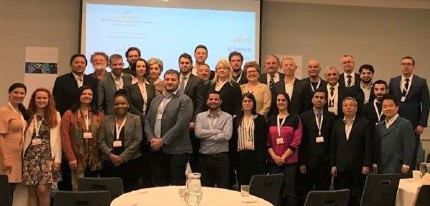URBAN INNO ON CITIZEN INVOLVEMENT AT M4Life
The mobile Government World Summit 2017 took place May 7-9, 2017 in Brighton (UK) and aimed at gathering mobile Government ICT professionals from all over the world.
More than 31 selected representatives of Mobile Industry, Public Sector, NGOs, and Academia joined this event to discuss and share achievements and challenges of mobile government of the last decade. Top-class public sector delegations from best performing countries, including Korea, UAE, Estonia, India, USSR and Colombia, just to name a few, shared their experiences and lessons learned in utilizing mobile technologies in public sector. Topics addressed were – amongst others – successful mobile government technologies, the importance of digital transformation in public authorities’ information security, challenges and opportunities of the Internet of Things systems and development of artificial intelligence for mobile government solutions.
The involvement of citizens in innovation processes was not only one of the main discussion points of the conference, but is also the central topic of URBAN INNO, as the acceptance of such technologies and applications, but also the willingness of citizens to use them and to contribute to the creation of Smart Cities, has been confirmed as one of the biggest challenges in the field of mobile government.
Tamara Högler presented URBAN INNO as an example for the importance of citizens’ involvement in innovation processes with focus on Smart Cities. The presentation has shown how quadruple helix clusters can contribute to the evolvement of Smart Cities in Europe. As best practice examples the results of former European and national projects – which created the basis for URBAN INNO – as well as current and planned activities of URBAN INNO have been showcased. The presentation emphasized that URBAN INNO is not a stand-alone project, but rather builds up on achievements of previous projects like CentraLab and UPSIDE, addressing the challenge to make Central Europe more innovative and competitive by maximizing the innovation potential of smaller and medium sized urban ecosystems. The main approach of URBAN INNO, a significantly better linkage of actors within urban innovation ecosystems is needed for a better use of innovation potentials towards Smart Cities, has been confirmed by all participants, resulting in fruitful discussions. The participants confirmed that there is a significant lack of participation in innovation processes from citizens and as users/customers. Thus, one of the main goals of public authorities should be to engage citizens in innovation processes in the framework of Smart City topics like mGovernment, Smart Energy or Smart Mobility.

The mobile Government World Summit 2017